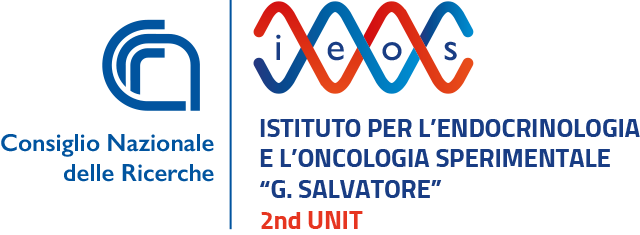Prof.ssa Simona Paladino - University of Naples Federico II, School of Medicine & Surgery- Dept of Molecular Medicine and Medical Biotechnology (Naples)
Abstract : Endosomal trafficking is essential for cellular homeostasis. At the crossroads of exocytic and endocytic fluxes, the endolysosomal system is a critical hub to meet the demands of metabolism, survival and growth by sorting proteins throughout the cell, by modulating cellular signaling and by controlling the cellular proteostasis. In the last years, we focused on studying the functional link between endolysosomal pathway and neuronal homeostasis since neurons seem to be more sensitive to endosomal perturbations. We have highlighted the crucial role of the ubiquitous inositol phosphatase Synaptojanin 1 (Synj1), whose loss-of-function mutations are causative of the hereditary form of Parkinson’s disease PARK20, while its excessive expression was observed in the post-mortem brains of individuals with Down syndrome (DS). Our findings pointed out a functional cross-talk among endolysosomal trafficking, Synj1 and neuronal homeostasis, emphasizing a dangerous liaison with brain disorders.
Biosketch: Simona Paladino is Full Professor of Cell Biology at the University of Naples Federico II, School of Medicine & Surgery and she runs the Membrane Trafficking in Health and Disease Laboratory at the Department of Molecular Medicine and Medical Biotechnology (DMMBM) in Naples. Simona received a Master in Biological Sciences and a PhD in Cellular and Molecular Biology & Pathology from the University of Naples Federico II. She did her postdoctoral training at the Pasteur Institute (Paris) where she spent three years and expanded her expertise in cutting-edge cellular imaging technologies for studying molecular dynamics. Came back in Naples in 2005, she developed an imaging microscopy facility at the CEINGE institute as contract researcher continuing her interest for studying mechanisms underpinning membrane trafficking, and then she established her laboratory at the Faculty of Medicine and Surgery at Naples University Federico II firstly as researcher in 2007 an then as Associate professor in 2014.
She contributed to the understanding of the mechanisms involved in epithelial cell polarity, in particular by identifying key factors regulating sorting, transport and membrane organization of GPI-anchored proteins. In the last years, her long-lasting expertise in protein trafficking and organelle biogenesis is exploited for deciphering the dysfunctional mechanisms of human diseases with an emphasis on neurological disorders. Currently, her research focuses on unravelling the molecular mechanisms underneath the alteration of neuronal homeostasis and plasticity, and neurodegeneration. By leveraging imaging technique combined to biochemical approaches and health and disease cellular models, she aims to deepen our understanding of these processes and advance the development of novel therapeutic strategies.
She is also very involved in teaching and organizing national/international conferences; she was member of the ABCD board and she is active member of NBG (Neapolitan Brain Group association) board.



